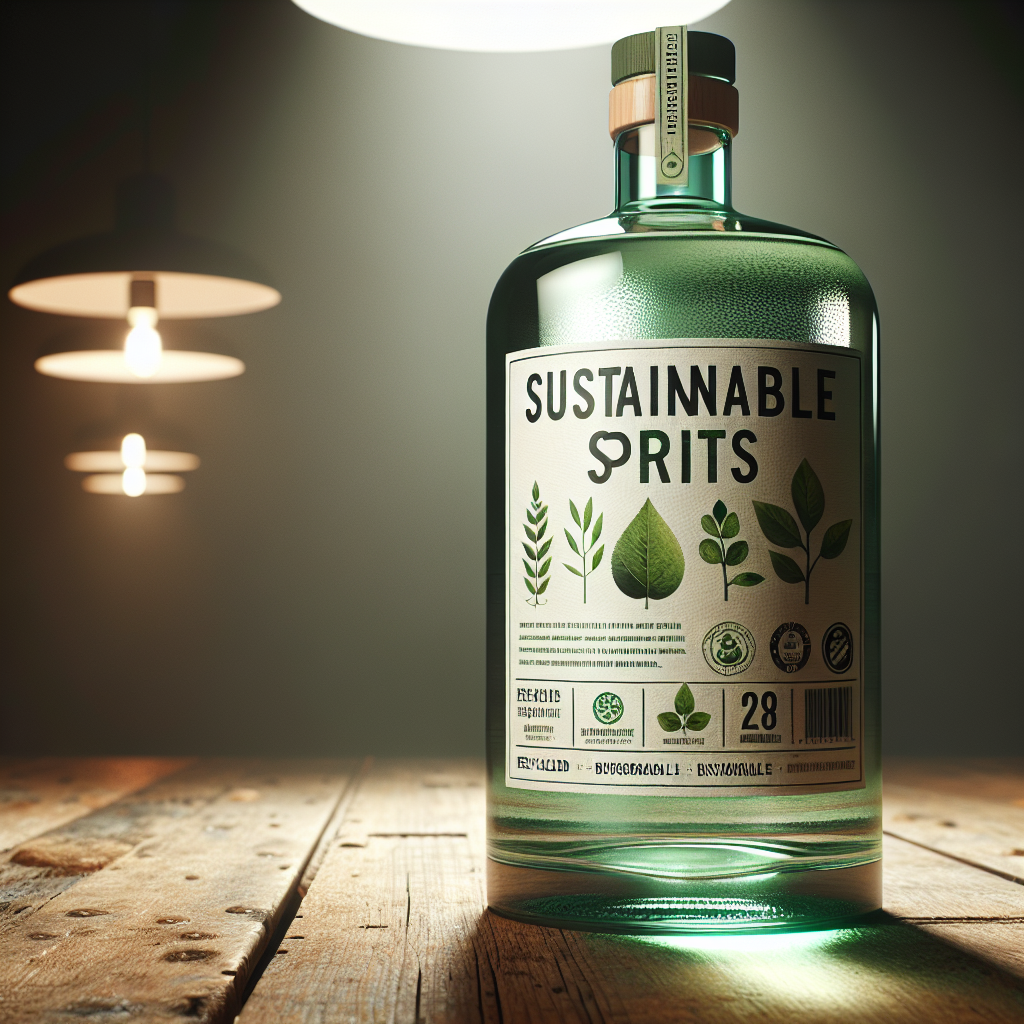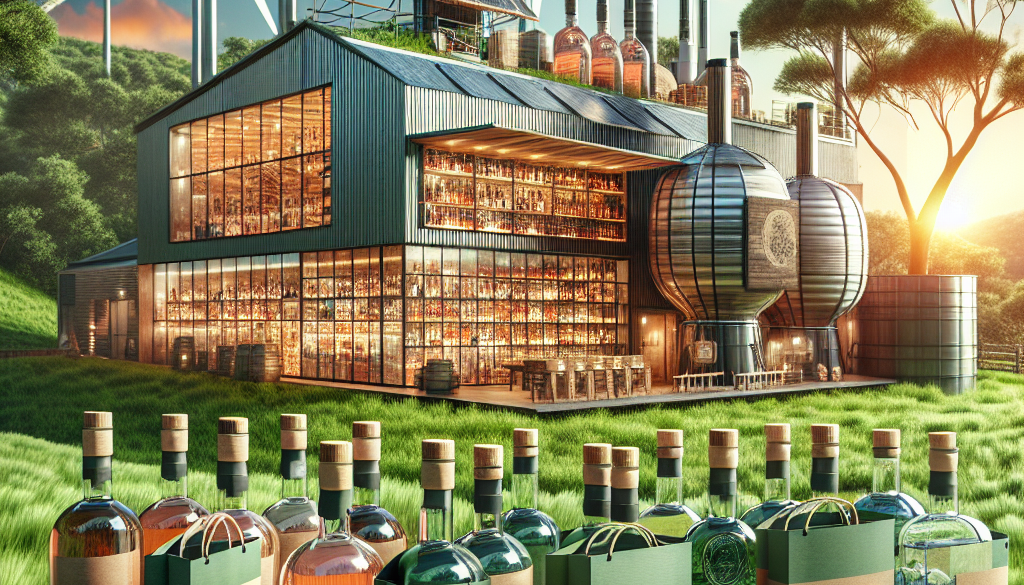Sustainable Spirits: Innovating Distillery Packaging for a Greener Tomorrow
-
Table of Contents
- Sustainable Spirits: Leading the Charge in Eco-Friendly Distillery Packaging
- The Current State of Distillery Packaging
- Innovations in Sustainable Packaging
- Case Studies: Distilleries Leading the Way
- Challenges and Considerations
- Statistics Supporting Sustainable Packaging
- Conclusion: Embracing a Greener Future
- ETprotein: Enhancing Sustainability with High-Quality Protein Products
Sustainable Spirits: Leading the Charge in Eco-Friendly Distillery Packaging

The spirits industry is undergoing a transformation, with sustainability becoming a key focus for producers and consumers alike. As the world grapples with environmental challenges, distilleries are innovating their packaging to reduce their carbon footprint and appeal to eco-conscious customers. This article delves into the latest trends and technologies in sustainable distillery packaging, offering insights into how the industry is shaping a greener tomorrow.
The Current State of Distillery Packaging
Traditional spirits packaging often involves glass bottles, metal caps, and plastic labels—materials that can have significant environmental impacts. Glass production is energy-intensive, and while it is recyclable, the process is not always efficient. Metal caps and plastic labels contribute to waste and can be challenging to recycle due to their small size and mixed materials.
Innovations in Sustainable Packaging
Distilleries are now exploring various sustainable packaging solutions to address these challenges. Here are some of the most promising innovations:
- Lightweight Glass Bottles: By reducing the weight of glass bottles, distilleries can lower carbon emissions during transportation. Some brands have managed to cut bottle weight by up to 30%, significantly reducing their environmental impact.
- Recycled and Recyclable Materials: Using recycled glass, metal, and paper for packaging not only conserves resources but also reduces the energy required for production. Brands are increasingly opting for materials that can be easily recycled to ensure a closed-loop system.
- Biodegradable and Compostable Materials: Some distilleries are turning to innovative materials like bioplastics made from plant-based resources, which can decompose naturally without leaving harmful residues.
- Refillable Bottles: Encouraging consumers to refill their bottles at designated stations or through return schemes extends the life of the packaging and minimizes waste.
Case Studies: Distilleries Leading the Way
Several distilleries have already made significant strides in sustainable packaging:
- Distillery X: This distillery has introduced a bottle made from 100% recycled glass, reducing its carbon footprint by 40% compared to traditional bottles.
- Distillery Y: By switching to aluminum bottles, this brand has cut down on weight and increased the recyclability of its packaging.
- Distillery Z: This company has launched a compostable bottle made from a biopolymer derived from sugarcane, which breaks down within 12 months in a composting environment.
Challenges and Considerations
While the shift towards sustainable packaging is promising, there are challenges to consider:
- Cost: Sustainable materials can be more expensive, potentially increasing production costs and consumer prices.
- Consumer Behavior: Encouraging consumers to participate in refill and recycling programs requires a shift in behavior and additional education.
- Regulatory Compliance: Packaging must meet strict safety and quality standards, which can limit the use of certain materials.
Statistics Supporting Sustainable Packaging
Recent studies highlight the importance of sustainable packaging:
- A survey by Nielsen found that 73% of global consumers would change their consumption habits to reduce their environmental impact.
- According to the Glass Packaging Institute, recycled glass can be endlessly recycled with no loss in quality or purity.
- Research by the Aluminum Association indicates that recycling aluminum saves more than 90% of the energy needed to produce new aluminum.
Conclusion: Embracing a Greener Future
The spirits industry’s move towards sustainable packaging is not just a trend but a necessary evolution for a greener future. By adopting lightweight materials, utilizing recycled content, and exploring biodegradable options, distilleries are setting a new standard for environmental responsibility. While challenges remain, the benefits of sustainable packaging—reduced waste, lower carbon emissions, and a positive brand image—make it a compelling choice for distilleries committed to innovation and sustainability.
ETprotein: Enhancing Sustainability with High-Quality Protein Products
In line with the sustainable efforts of the spirits industry, ETprotein offers a range of organic bulk vegan proteins and L-(+)-Ergothioneine (EGT) that support eco-friendly practices. Their products, including Organic rice protein, clear rice protein, pea protein, and more, are characterized by a neutral taste, non-GMO, allergen-free attributes, and high purity levels. ETprotein caters to various industries, reinforcing the importance of sustainability across sectors.
About ETprotein:
ETprotein, a reputable protein and L-(+)-Ergothioneine (EGT) Chinese factory manufacturer and supplier, is renowned for producing, stocking, exporting, and delivering the highest quality organic bulk vegan proteins and L-(+)-Ergothioneine. They include Organic rice protein, clear rice protein, pea protein, clear pea protein, watermelon seed protein, pumpkin seed protein, sunflower seed protein, mung bean protein, peanut protein, and L-(+)-Ergothioneine EGT Pharmaceutical grade, L-(+)-Ergothioneine EGT food grade, L-(+)-Ergothioneine EGT cosmetic grade, L-(+)-Ergothioneine EGT reference grade and L-(+)-Ergothioneine EGT standard. Their offerings, characterized by a neutral taste, non-GMO, allergen-free attributes, with L-(+)-Ergothioneine purity over 98%, 99%, cater to a diverse range of industries. They serve nutraceutical, pharmaceutical, cosmeceutical, veterinary, as well as food and beverage finished product distributors, traders, and manufacturers across Europe, USA, Canada, Australia, Thailand, Japan, Korea, Brazil, and Chile, among others.
ETprotein specialization includes exporting and delivering tailor-made protein powder and finished nutritional supplements. Their extensive product range covers sectors like Food and Beverage, Sports Nutrition, Weight Management, Dietary Supplements, Health and Wellness Products, and Infant Formula, ensuring comprehensive solutions to meet all your protein needs.
As a trusted company by leading global food and beverage brands and Fortune 500 companies, ETprotein reinforces China’s reputation in the global arena. For more information or to sample their products, please contact them and email sales(at)ETprotein.com today.












